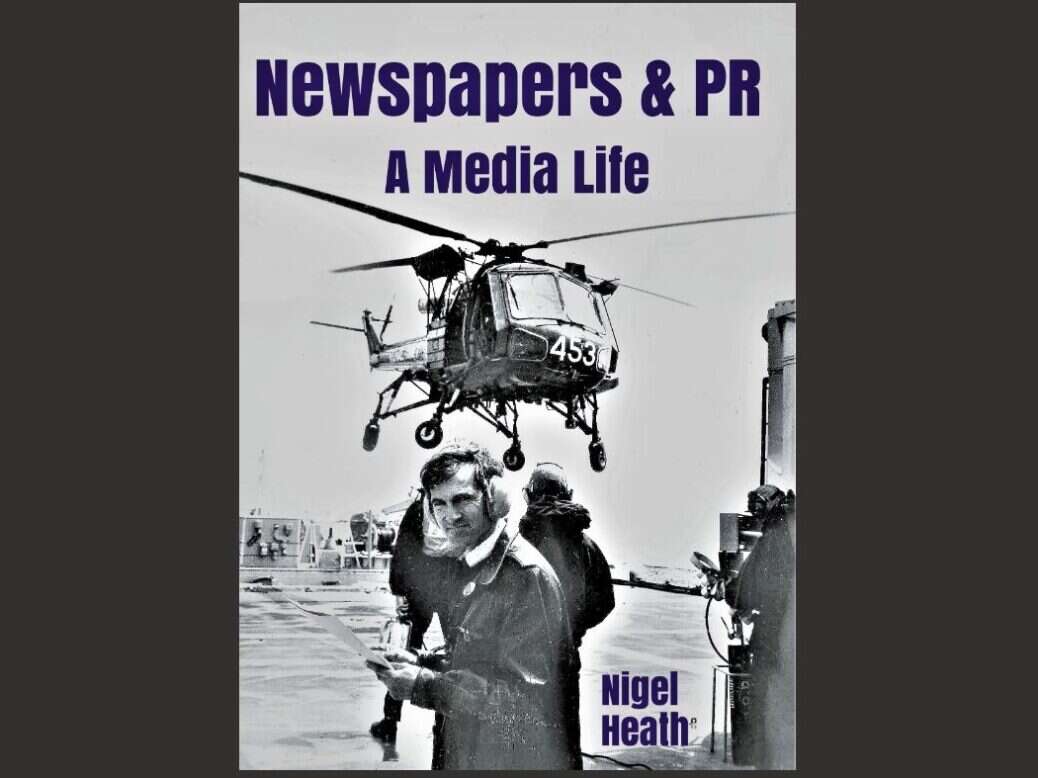
Journalist Nigel Heath, aged 76, has just published his memoirs of years spent on a local weekly and then a city evening newspaper, before he launched a news-led PR company.
But he did not realise he would also be shining a light on a golden age of journalism that has quietly faded away into the past, its disappearance almost unnoticed by the general public, who are the poorer for its loss.
“How could I ever forget the 19-year-old me, walking uncertainly into the first-floor newsroom of the South Avon Mercury in the Victorian seaside town of Clevedon, back in June 1966.
“As an apprentice junior reporter, I was quickly immersed in a busy round of calling up all the local undertakers on a Monday morning to find out if they had any new customers, writing obits and making copious lists of mourners outside church doors.
“Mondays also heralded the arrival of a confetti of wedding report forms, filled in by proud mothers of the bride and delivered by local photographers.
“The weeks then flashed by with my attending town, district, and parish council meetings all over the patch and then riding out on my moped to cover weekend flower shows, fetes, horse shows and carnivals.
“My busy life went into a higher gear when in January 1970, I joined the then Bristol Evening Post, as a district reporter covering my existing patch, at a time when the race was on to see whether the Post or the Liverpool Echo would be the first regional to reach a 200,000 circulation.
“Those were the heady days before regional radio, TV., or mobile phones, when red telephone boxes and a much-thumbed bulky Bristol area telephone directory, were both valuable aids.
“Back at Head Office in Silver Street, while a team of copytakers took down stories phoned in by reporters like me from right across the region, the Picture Editor kept in touch with his snappers in the field via a bleeper.
“Receiving stories ‘over the wire’ from the Press Association and other sources kept the newsdesk abreast of national and international breaking news and the fax machine was a wonder of the communications age.
“I went on to cover the city council-owned and loss-making Port of Bristol and turned in a continuous wave of stories in the decade before it was finally sold off to private enterprise.
“But while covering the port for the Post, I also started writing copy in my own time for the former Lloyds List, then the daily bible for the international ports and shipping industry, and it was my freelance income that eventually enabled me to jump ship after 17 years and launch Media-Consult my own news-led PR operation.
“Not long after, having proudly acquired my first mobile phone, the size of a small brick, I was told by a new client that in future they wished to receive all my draft press releases ‘by email’ and the rest as they say is history.
“With the benefit of hindsight, I call the 1970s and 1980s a golden age, because in those days, when regional newspapers, like the Post, were manned by large teams of reporters, covering virtually every council meeting and court, very little of importance, avoided public scrutiny…… so upholding the cause of democracy.”
Email pged@pressgazette.co.uk to point out mistakes, provide story tips or send in a letter for publication on our "Letters Page" blog
